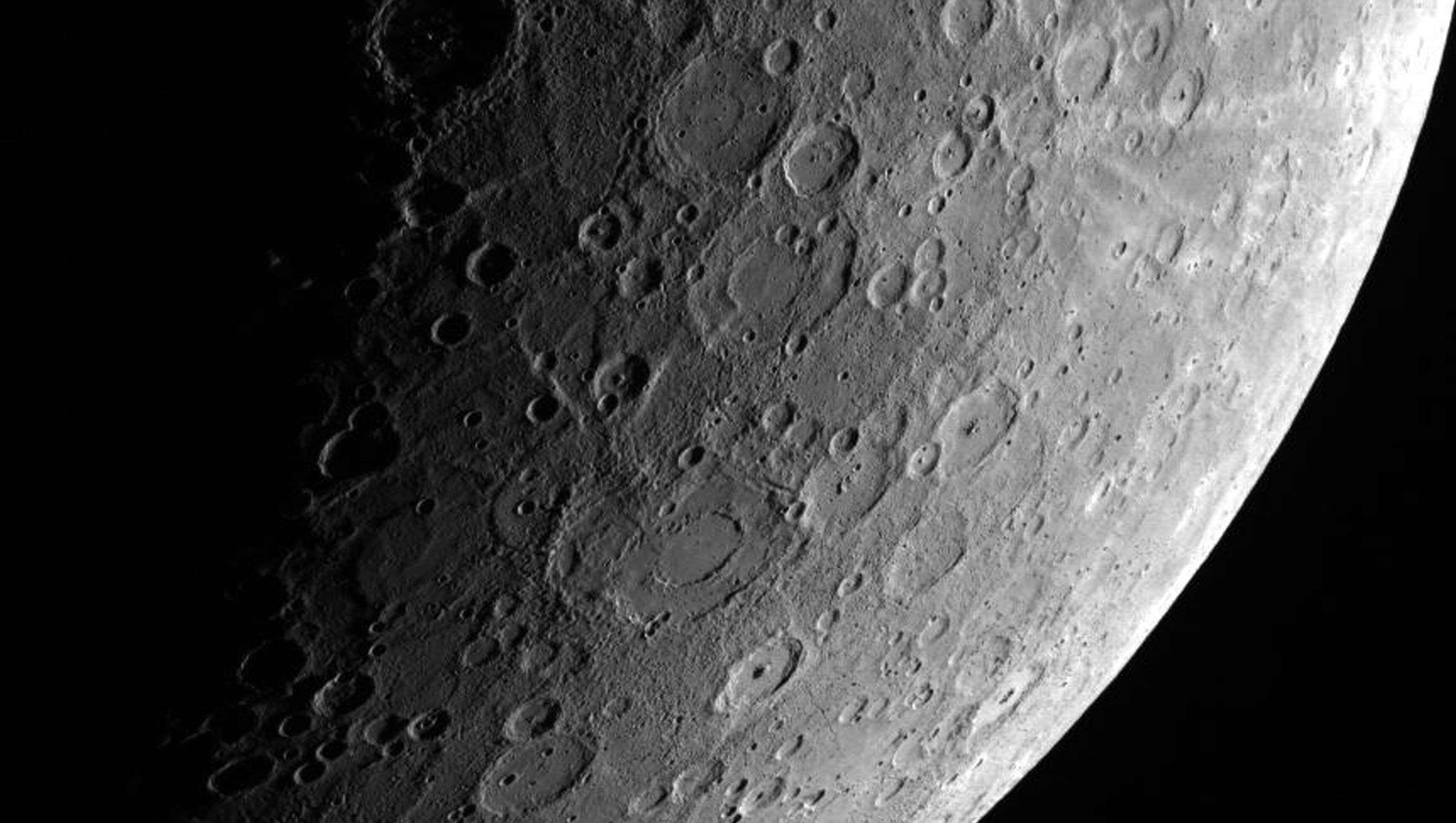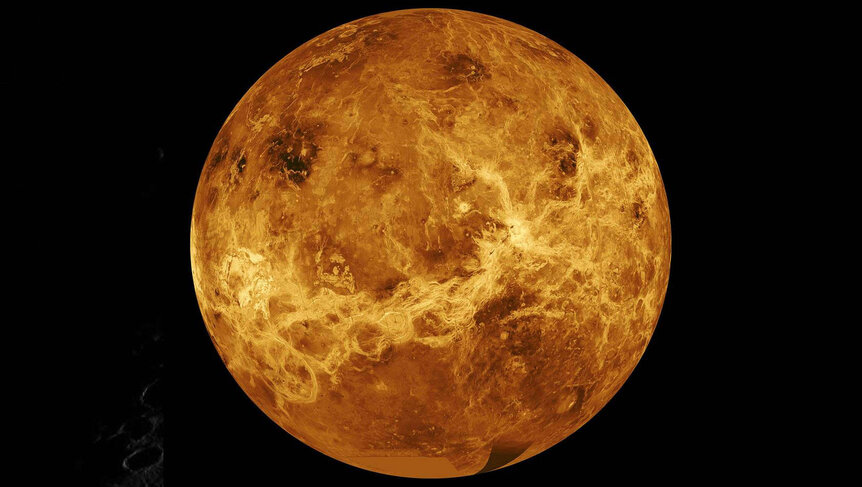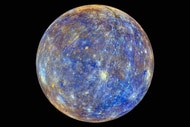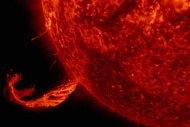Create a free profile to get unlimited access to exclusive videos, sweepstakes, and more!
Hostile planets like Mercury and Venus might tell us how life, uh, finds a way

Life as we know it has been the standard for seeking out anything that might be creeping around on other planets. Most organisms that intend to stay alive on Earth need oxygen, water, light and a certain temperature range to prevent getting frozen or fried. But wait.
Types of life as we never knew it have already been found on Earth. Some microorganisms can survive in pools of poison or lightless environments almost devoid of oxygen. Others don’t even need organics to survive. There are bacteria that gorge themselves on methane, so it is possible something similar is lurking in that the methane and ethane lakes of Saturn's moon Titan. This is hardly life as we know it. So would we really be that shocked if some distant planet spawned life as we don't know it?
Michael Way of NASA’s Goddard Institute for Space Studies and Alexis Rodriguez of the Planetary Science Institute believe we’ve been way too fast to discount Venus and even Mercury as having, or ever having had, life. Venus is toxic and both are scorching, aspects that defy the criteria we normally use to identify habitable environments. But what if our idea of a habitable planet means we are overlooking the must unlikely places for life to be hiding?If an inhospitable world like Venus had water in the past and could possibly have microbes in its atmosphere, that might affect how that we look for alien life in the future.
Everything goes back to the Jeff Goldblum quote heard around the world: “Life, uh…finds a way.”
“I think finding life on Venus would simply confirm what we already know about Earth,” Way, who co-authored a study published in Earth and Planetary Astrophysics, told SYFY WIRE. “If you give life enough time (in Earth’s case nearly 4 billion years), life will find a way to fill nearly every ecological niche on a planet.”
Most Earth life-forms need oxygen, water, and a cocktail of amino acids that link into the proteins which form DNA. You can’t just smash together proteins and expect life to emerge from that. Everything that organisms require to survive on this planet can be found here, since this is where that life crawled out of to begin with, and that does provide a basis for what we could expect when searching for aliens. The emphasis here is on could. What if life on some faraway planet came into being the same way, out of elements and compounds that all exist on that planet, but its (hypothetical) life-forms are nothing like we could ever imagine?
“If microbes were ever found in the atmosphere of Venus. it would further bolster arguments for the robustness of evolutionary processes to find a way for life to persist even when a planet goes from a temperate state like modern Earth to a devastated world like Venus,” said Way. “It is possible so long as the transition is not too rapid so that evolution has time to adapt.”
Unadulterated chaos could best describe the early universe. Protoplanets and hunks of rock that would later become parts of these planets or go off on their own as asteroids or even rogue planets were smashing into each other with abandon. In the process of this constant head-butting and faceplanting, they also exchanged different compounds that are (at least on Earth) associated with life, like organics and volatiles. If there ever was water on Mercury or Venus, did it come from a close encounter with Earth or vice versa?
“The finding of numerous volatile-bearing surfaces on Mercury comprises one of the most critical discoveries by the MESSENGER (MErcury Surface Space ENvironment GEochemistry and Ranging) spacecraft,” Rodriguez said in a study he co-authored, published in Scientific Reports.
Mercury’s enormous Caloris basin, previously assumed to be formed by an unknown impact, was found by Rodriguez and his team to be two billion years older than the rest of the planet when they gave MESSENGER data another look. They now believe it was an enormous sinkhole that resulted from the collapse of mountains and other terrain, trapping volatiles and other compounds that might have been breeding grounds for primordial microbes. Water is one of these volatiles.
“The occurrence of these widespread chaotic terrains supports the existence of deep…volatile-rich upper crustal materials with supraregional distributions, which, regionally, underwent gradual and structurally controlled collapse,” Rodriguez said.
The question is whether life that supposedly adapted to an environment as brutal as Mercury’s would even need water. For now, the only living thing we know of that lives on another object in space are those tardigrades that spilled on the moon in a lander crash, and those micro-tourists flew over from Earth. That still doesn't mean Mercury or Venus are dead planets. There are Earth microbes that can survive killer radiation comparable to Mercury’s. While Way believes that the only life capable of surviving on Venus would also be microbial, such microbes might be floating around in its noxious clouds.
“Looking at the most robust life forms on Earth (extremophiles) makes it apparent that most of Venus is uninhabitable by nearly all life forms on Earth,” Way said. “That’s not to say that evolution could not find alternative pathways to success, but they are probably well beyond our current imagination. We need to go back and sample the atmosphere of Venus and see what we might find.”















